Conant seniors discuss their plans for the “real world”
What happens after high school graduation? The Crier investigated the different majors Conant’s seniors are planning to go into as they approach their much-awaited Graduation Day. We interviewed nine seniors to find out what majors they will be entering in college and to see if they had any tips for their fellow Cougars. You don’t want to miss their advice.
Emma Morawski – Spanish Teacher
Crier: Any special classes at Conant that helped you in choosing your major?
Morawski: Spanish obviously, but the internship program helps out a lot, too. It gives a really good perspective of what it is like to be a teacher. From making worksheets to being in front of the class teaching by yourself, it really builds confidence.
Crier: Do you have any advice for underclassmen that are looking into this field?
Morawski: Stick with Spanish, study, and be sure you’re confident in your Spanish.
Crier: What do you hope to gain from the major or career?
Morawski: A lot of teachers have changed my life and made me have a positive outlook on school, so I want to be one of those teachers that changes students’ lives and gives them a positive attitude.
Govind Verma – Biochemistry
Crier: What made you want to go into this field?
Verma: Ever since I was little, I liked the medical field. My dad is a physician, and my sister is in medical school. Because of all the influence, the science field has always been interesting to me.
Crier: Are there any clubs at Conant that gave you opportunities in the field?
Verma: Medical Careers Club showed me how I can improve society. It also runs the Blood Drive, and it serves as an example of what I could be doing in the future.
Crier: Do you have any advice for underclassmen that are looking into this field?
Verma: Pay attention in your science classes. There’s a lot of science and hard work involved. I also recommend taking the Med Terms class. It really clears up some details of the medical field.
Zaia Dinkha – Entrepreneurship/management
Crier: Any special classes at Conant that helped you in choosing your major?
Dinka: I took Business Explorations, Business Management and I’m currently in Entrepreneurship. Applied Technology classes also helped because they dealt with websites that can help run your business.
Crier: Any internships or volunteer work that you have done to further your interest in your major?
Dinka: I have done volunteer work playing violins and guitar for the senior citizens. Volunteering there helped me understand stock and supply because I had to figure out how much food to give out and how much food to take in. There’s a lot of behind the scenes work. Meeting new people is very important because in business, that is what it’s all about–it’s the people.
Crier: Do you have any advice for underclassmen that are looking into this field?
Dinka: Don’t think that it’s easy. T.V. makes business seem easy and glamorous, but it’s hard work to go from the Bill Gates that was making computers in his garage to the successful billionaire he is now. Also, don’t think you’re going to get paid the first few years, because you won’t. You’ll have to put it all back into your business. You have to always put in 110% effort .
Emily Sing – International Studies
Crier: Any special classes at Conant that helped you in choosing your major?
Sing: I’ve taken World History, European History, and U.S. History. I think it’s interesting to learn about different countries and why they are the way they are now. I’ve also taken accounting, which helped me with the business aspect.
Crier: How did you choose what schools to apply to?
Sing: I’m applying to University of St. Andrews in Scotland because it is an international school. Going there would help me see the world in a different perspective. I also look for schools with great business programs.
Crier: Do you have any advice for underclassmen that are looking into this field?
Sing: Do research. It’s a new field, and right now there’s a lot of companies that are looking to go global. Also, have a good grasp of what international business is. There’s a lot of international branches, and they all focus on making sure businesses are connected globally.
Taylor Waidanz – Journalism
Crier: How did you choose what schools to apply to?
Waidanz: I wanted to be in a big city with a big media market because it gives me opportunities for internships and a lot of connections. So I applied to UIC and Loyola mainly because going to college in Chicago is awesome. It’s a huge market.
Crier: Are there any clubs at Conant that gave you opportunities in the field?
Waidanz: Working with the school newspaper was all I had. It’s a start towards the real world. Our world is here in high school, and it’s the same thing, just on a smaller scale.
Crier: What do you hope to gain from the major or career?
Waidanz: I hope to give a voice to those that don’t have one. There are people all over the world that have gone unnoticed. I want people to know about them and to give them help if they need it. I love learning about different people around the world from all walks of life.
Anthony Preucil – Music & Meteorology
Crier: How long have you known that you wanted to go into this major?
Preucil: I’ve known I wanted to go into music since I was in 6th grade. I started playing the violin when I was three years old. I started playing more when I was in the 6th grade, and since then I’ve gotten more and more interested. For meteorology, I’ve known since sophomore year. I went to an open house at the National Weather Service, and after that I became sure that’s what I wanted to do.
Crier: Any internships or volunteer work that you have done to further your interest in your major?
Preucil: My job is teaching violin to students between the ages of 3 to 13. I’ve been teaching since I was a sophomore, and I have 14 students. Every week, they come to my house and I teach them music. For meteorology, I volunteer at the National Weather Service, and I am a trained severe storm spotter. In the summer time when there are severe storms in the area, I’ll get a call and they’ll ask me to go around and chase a storm. I also have to report hail sizes and wind speeds.
Crier: Do you have any advice for underclassmen that are looking into this field?
Preucil: For those looking into meteorology, I recommend doing your own personal research. The Internet is a great source for finding out what different meteorology jobs are like. Keep track of different weather readings or do what I did–I made a graph for a whole year’s worth of barometric pressure and temperature readings, and I graphed them against each other. Get yourself interested in it in different ways. For music, do summer music camps. The summer is for you. Take opportunities to discover how much you love music.
Megan Kilgore – Fire Science
Crier: Do you have any real-world experiences that solidified your decision?
Kilgore: I had some previous training, and I participated in ride-along experiences at fire departments. It has shown me what a real day on the job might consist of, and it just confirmed that this was the career for me.
Crier: Do you have any advice for underclassmen that are looking into this field?
Kilgore: Talk to local firemen and get to know them. Do your best to get educated on what you can because this is a job where you need to know right away if you’re going to be able to handle the day-to-day stress.
Crier: What do you hope to gain from the major or career?
Kilgore: My plan is to receive my degree in fire science and get my paramedic certification over the next three to four years. Once that is done, I am going to test and interview for as many departments as I can. The goal is to be a full-time career firefighter.
Kevin Chang – Computer Science
Crier: What made you want to go into this field?
Chang: Computer science is a fast-paced, ever-changing field, and there is an abundance of complex problems to solve at any given moment. Additionally, computer science is one of the easiest fields to get a head-start on simply due to the accessibility of programming resources.
Crier: Any internships or volunteer work that you have done to further your interest in your major?
Chang: I had an internship at a local startup, and I am currently working on a couple projects on the side. As to volunteer work, I created http://connecttocommunityinc.org after a summer of close collaboration with the charity.
Crier: Do you have any advice for underclassmen that are looking into this field?
Chang: Programming isn’t as difficult and foreign as it may initially seem! Simply Google around, and you will find an abundance of opportunities to explore and learn how to code. If you really intend on studying computer science in the future, don’t spend your entire high school career resume-padding and participating in activities you don’t enjoy; instead, read a couple programming books and try to work on a couple side projects.
Owen Flasch – Engineering
Crier: Any special classes at Conant that helped you in choosing your major?
Flasch: All of my math and science classes, especially AP Physics B inspired me to choose my major. Mr. Torpe’s enthusiasm for physics, shown through exciting learning experiences and crazy demos (that didn’t always go as planned), really birthed my own passion for physics and a hunger for more.
Crier: Do you have any real-world experiences that solidified your decision?
Flasch: It was enlightening and fulfilling to work at my summer job as a property maintenance/landscaping worker. I had many hands-on experiences with equipment and machinery fixing and building things on a 35-acre church and school property that gave me some practical knowledge.
Crier: Do you have any advice for underclassmen that are looking into this field?
Flasch: Take as many AP classes as you can to become a well-versed student, but especially take your math and sciences very seriously and challenge yourself. AP Physics B was absolutely vital to my decision to become an engineer because it gave me a glimpse of what engineering is all about.

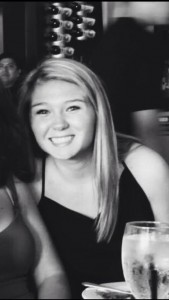
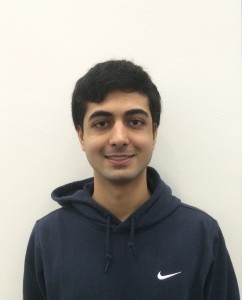
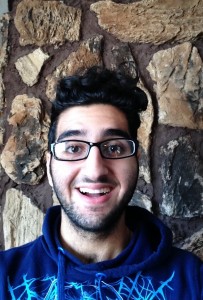
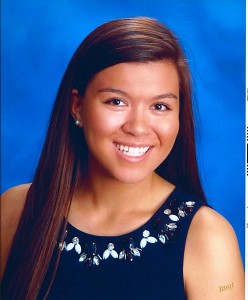
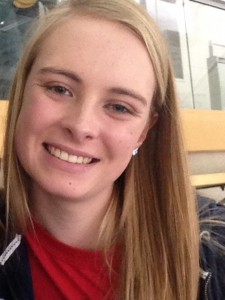

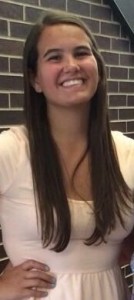
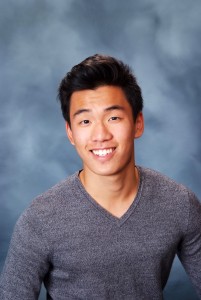
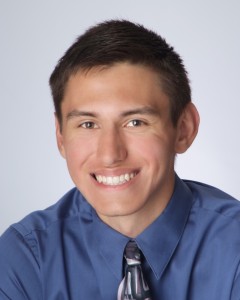
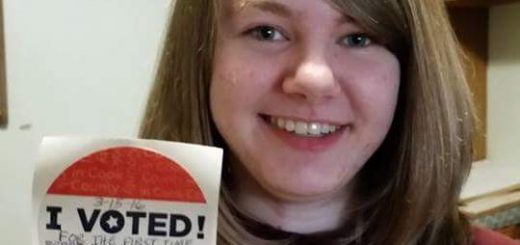
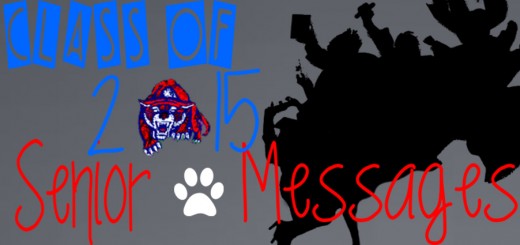
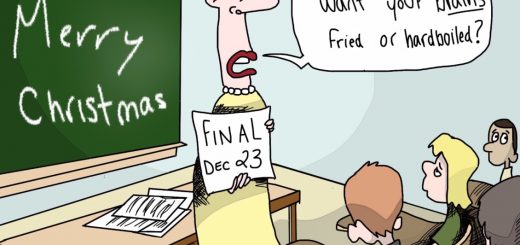
Recent Comments